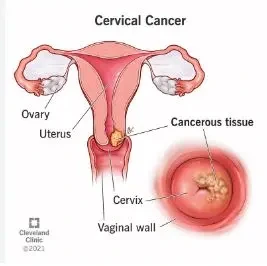Dr. Funmi Ige, President of MWAN, stated that the association is concerned with the health of both men and women. She emphasized that parents should encourage their children, especially girls aged nine to fourteen, to receive the vaccine. “Claims that vaccination could be fatal are false and should not be spread,” Ige added....CLICK HERE TO CONTINUE READING.>>
Stakeholders in the health sector have raised the alarm over the rising cases of cervical cancer in the country following World Health Organisation, WHO’s, records showing no fewer than 7,968 deaths from the disease yearly.
Thank you for reading this post, don't forget to subscribe!They noted that cervical cancer was the second most common cancer in Nigerian women, accounting for approximately 16 per cent of all female cancers.
The experts addressed the issue during a vaccine awareness and uptake program organized by Pathfinder in collaboration with the Medical Women Association of Nigeria (MWAN), the Nigeria Cancer Society (NCS), and the Lagos State Primary Health Care Development Board, held in Lagos.
Dr Adeniji Adebayo of the Lagos State Primary Healthcare Board, said Nigeria has one of the highest rates of cervical cancer incidence in the world.
According to him, “it not only affects the physical health of women but also takes a toll on families and communities
Adebayo said: “Human Papillomavirus, HPV, is primarily transmitted through direct skin-to-skin contact, usually through sexual activity. The virus infects the genital areas of both men and women and can also affect the mouth and throat. The most common mode of transmission is through sexual intercourse, including vaginal, anal, and oral sex. The virus can be passed from one person to another even if there are no visible signs of infection or symptoms.”
Dr. Funmi Ige, President of MWAN, stated that the association is concerned with the health of both men and women. She emphasized that parents should encourage their children, especially girls aged nine to fourteen, to receive the vaccine. “Claims that vaccination could be fatal are false and should not be spread,” Ige added.











